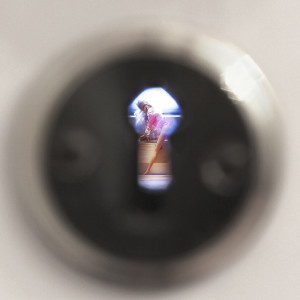
by Susan Weidman Schneider
The Barry Freundel Case 101

http://www.flickr.com/fmmr
By now we all think we know most of the story.
Rabbi Barry Freundel, longtime spiritual leader of the Modern Orthodox synagogue Kesher Israel in Washington, D.C., has been arrested on charges of voyeurism for having spied upon—and recorded—women undressing and dressing at the mikvah next door to the shul.
Some of the women were preparing to immerse in the ritual bath to mark the end of their menstrual cycle, some as part of the final step in conversion to Judaism, some for reasons of their own accounting perhaps. For all who have used that mikvah in recent months, there’s uneasiness about whose images are on the recording device that Freundel secreted in a digital clock in a mikvah dressing room. But the anxiety—and anger—spread well beyond those who might have been affected directly by the sordid crime of which Freundel is accused.
In brief, and not ranked in order of heinousness, are some of the themes drawn into the web of violations this particular accusation of spying on naked women entails.
1) It’s about violation. Mikvah is for many women an intensely personal experience of time and space, renewal and, for some, healing and transition. Most women who use the mikvah immerse themselves with a blessing before resuming sex after menstruation. But others have used the mikvah after a miscarriage, or as part of a process of healing after rape or abuse, or to mark a transition into or out of a marriage. As Rabbi Danya Ruttenberg has written poignantly about this case, “I don’t know what percent of the water in the mikvah is actually made up of women’s tears, but I suspect it’s a lot.”
To have this spiritual and psychological—and physical—sanctity of the mikvah violated is dreadful, and several women have posted on social media that, like those suffering from PTSD, they will now feel suspicious and uneasy whenever they use a mikvah, no matter where. Women who actually used the particular mikvah where the voyeurism and recording are alleged to have taken place are especially uneasy over who will see those images of them. DC Police chief Cathy Lanier and others have issued assurances that the forensic specialist called in to go over the evidence seized at Freundel’s home will look at the images in complete privacy, in a locked room. But for an Orthodox woman—perhaps every woman—the idea that strangers will be looking, unbidden, at images of her body, in various states of undress, feels like a further significant violation.
2) It’s about power over conversions–and its misuse. The rabbi has been a leading authority on Orthodox conversion to Judaism, and as such has wielded great power over the question of who is a Jew. It is thought that at least some of the women he spied on were in his charge for conversion teaching and supervision. One of the women being prepared by him for her conversion reports that he called her into the mikvah to perform “practice dunks” before her formal conversion immersion; she has said that she believes she was likely recorded in the dressing room, since she noticed the clock and was told not to block it with her water bottle. And now that Freundel’s behavior is under suspicion by the courts, there has been concern on the part of some people whom he certified for conversion that their conversion might not be “kosher”—although there has been no suggestion from U.S. Orthodox Jewish authorities that this might be the case.
3) It’s about self-righteousness while masking one’s own flaws. “Not a warm and cuddly rabbi,” as one congregant pronounced him to the press, Freundel was more often described as aloof and scholarly. He positioned himself against homosexuality, and against abortion in most instances, and railed against Internet pornography (“only two clicks away”) as a scourge of modern marriage. If these charges of voyeurism are upheld in court, we must say: Uh Huh.
4) It’s about Orthodox women feeling justified now more than ever in claiming power that is rightfully theirs. On Facebook, in blog posts and in conversations everywhere, activists are calling for women to be in full charge of the mikvah—not just as mikvah attendants but as religious decisors on intimate matters concerning other women. Perhaps this case will be what drives home a shift of power, so that religious women do not need to go to a male rabbi for advice on personal matters. As a first step, two other mikvahs in the Washington area have just issued a statement that henceforth in their mikvahs any men entering the mikvah for maintenance work or other non-religious reasons must be accompanied by a female mikvah attendant at all times. Maybe the idea of Orthodox women claiming power over this powerful place for women’s spirituality will be one good outcome from this.
Lilith will continue to bring you news on these matters as the investigation and its reverberations unfold. While the authorities in D.C. are moving speedily (having worked all through the night right after the police were first called in last week) they are also working very thoroughly, and they say not to expect the investigation to conclude any time soon. Meanwhile, Amy Stone’s blog post and roundup of the online reporting so far draws some of her own interpretations of what’s lurking beneath the surface of these particular mikvah waters. And Elana Sztokman shares her Facebook posts about the fraught issues (including conversion) that the allegations against Freundel have brought right up to the surface in the past seven days.